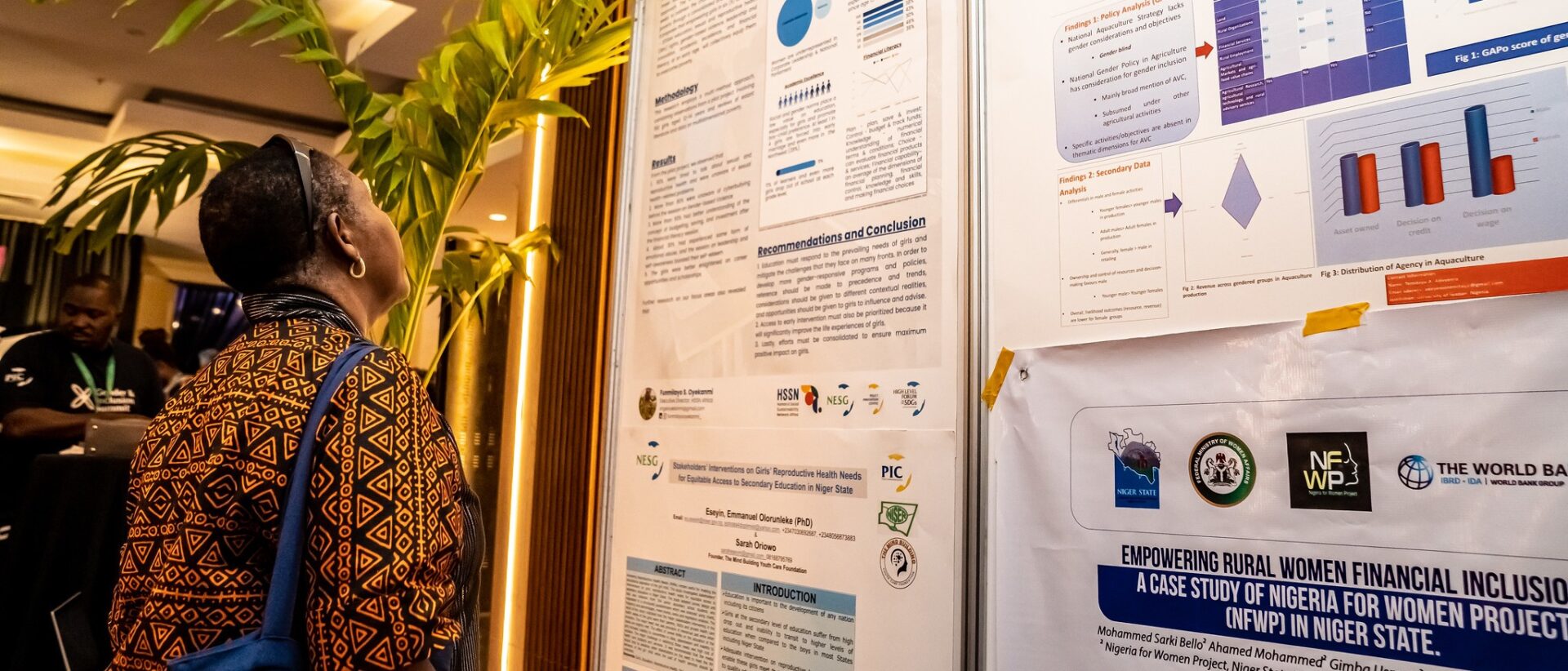Call for Abstracts

The Policy Innovation Centre (PIC) of the Nigerian Economic Summit Group (NESG) is set to host the 4th edition of the Gender and Inclusion Summit. The theme of the summit is “New Voices and New Approaches for Accelerating an Inclusive Society”. and will serve as a platform to accelerate progress by harnessing innovative approaches and amplifying new voices as a strategy for advancing economic and social development for all. The Gender and Inclusion Summit 2025 is scheduled to be held from September 3-4, 2025 in Abuja, Nigeria.
About the Call for Abstracts
The purpose of the call for abstracts is to invite researchers, development practitioners, scholars, and individuals interested in social development to submit their research presentations for consideration as part of the summit’s program. This year, GS-25 will accept abstracts within 11 tracks listed below. Abstracts should be directly relevant to at least one of the tracks. Shortlisted abstracts will be able to present their work through poster and oral presentations at the Summit. This call aims to foster inclusive engagement and promote the dissemination of evidence for inclusive development in Africa.
Focus: Exploring strategies to close the gender gap in education, increase the representation of new voices in research, and promote lifelong learning, with a focus on equitable access and gender-inclusive policies.
Focus: Highlighting innovative strategies and diverse voices to promote women’s leadership across sectors, dismantle structural barriers, and foster inclusive governance and decision-making.
Focus: Examining the role of digital infrastructure in advancing gender inclusivity, addressing AI biases, and leveraging technology to empower women and amplify gender advocacy efforts.
Track 4: Exploring how equitable healthcare services can significantly reduce health-related poverty and improve overall well-being, especially for women and marginalized groups
Focus: Addressing the intersection of gender, economic empowerment, and housing accessibility, with a focus on land ownership for agricultural livelihoods, financial inclusion, and gender-inclusive urban planning.
Focus: Exploring mobility challenges faced by individuals, advocating for safer public and private transportation systems, and promoting gender-sensitive urban mobility policies.
Focus: Examining how shared domestic and care responsibilities contribute to gender equity, while advocating for improved policies to close gender gaps.
Focus: Explore how emerging voices and innovative approaches are reshaping Africa’s creative economy, with a focus on gender inclusion and empowerment.
Focus: Analysing the role of legal reforms in addressing gender-based violence, promoting gender-responsive policing, and engaging men as allies in justice and protection systems.
Focus: Highlighting the importance of multi-stakeholder partnerships in ensuring food security and promoting sustainable agricultural practices, with an emphasis on women’s roles in food systems
Focus: Exploring sustainable financing models, including gender-responsive budgeting, blended finance, philanthropic partnerships, and community-driven funding, to advance gender equality. The session will also address how to align financial flows with national priorities, ensure accountability, and attract private sector investment for inclusive impact. roles in food systems
Authors can select between two formats for their abstract, guaranteeing clarity and relevance to their work:
Option 1:
Research Abstracts
- Background: State the purpose/objective, hypothesis, or problem addressed.
- Methods: Describe the study period, setting, design, population, data collection, and analysis.
- Results: Present key findings and outcomes.
- Conclusions: Explain the significance, implications, and future directions.
Option 2:
Programme/Project Implementation Abstracts
- Background: Summarise the purpose, scope, and objectives of the programme, project, or policy.
- Description: Outline the period, setting, structure, key populations, activities, and interventions.
- Lessons Learned: Present findings, outcomes, and best practices, supported by specific results.
- Conclusions/Next Steps: Discuss the significance, implications, and recommendations for future work.
Submission Guidelines
▶ Language: English only.
▶ Originality: Submissions must be original and not previously published or presented unless substantially updated.
▶ Format:
- ◉ Title: Times New Roman, 12pt, sentence case, centered, bold.
- ◉ Body: Times New Roman, 11pt, single line spacing, one column.
- ◉ No bullets, lists, headers, footers, citations, tables, figures, or references in the abstract.
- ◉ Word limit: 350 words.
▶ Keywords: Please indicate 3-5 keywords (free text, maximum 25 characters per keyword). The keywords must be representative of the content of the abstract.
▶ Authorship:
List full names and affiliations of presenting and contributing authors.
Grammar: Ensure proper grammar, spelling, and coherence.
Review and Selection Process
▶ All abstracts undergo a double-blind peer review by the abstract committee.
▶ Each abstract is scored on five criteria: background/objective, methodology/design, results/lessons learned, conclusions/next steps, and originality/contribution to the field.
▶ Abstracts will be reviewed by multiple reviewers, and scores are averaged for final selection.
▶ Selected abstracts will be published in the Book of Abstracts. Presenting authors will receive certificates.
10 outstanding abstracts will be selected for oral presentations; others will be presented as posters.
Timeline
Call for Abstracts Opens:
June 11, 2025
Abstract Submission Deadline:
July 12, 2025
Notification of Acceptance (Poster):
August 12, 2025
Notification for Oral Presentations:
August 12, 2025
Summit Dates:
September 3–4, 2025

The Policy Innovation Centre (PIC) is the first national institutionalized behavioral initiative in Africa supporting government and stakeholders to make behaviorally informed decisions and generate evidence for impact driven interventions in critical thematic areas.
WHERE WE WORK
What We Do
+234 906 164 0753
ABUJA
Plot 1524, Cadastral Zone B08, Jahi District, FCT Abuja.
LAGOS
The Summit House 6, Oba Elegushi Street, off Oba Adeyinka Oyekan Avenue, Ikoyi, Lagos.
Copyright 2025 – Policy Innovation Centre (PIC)
